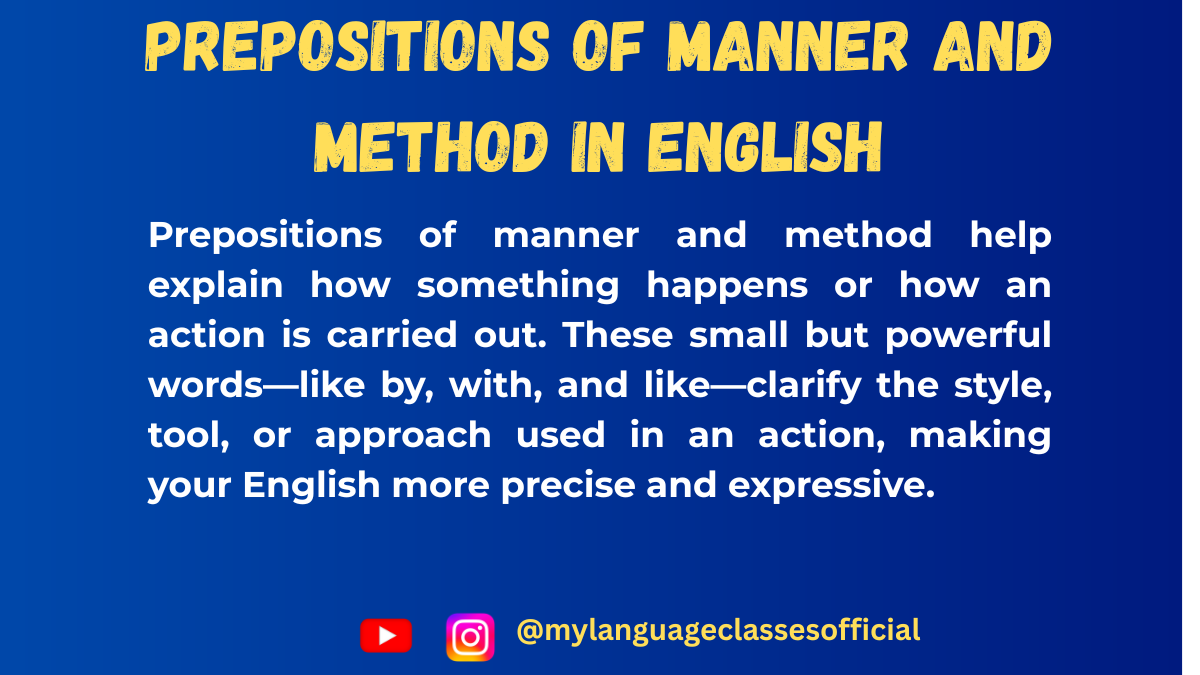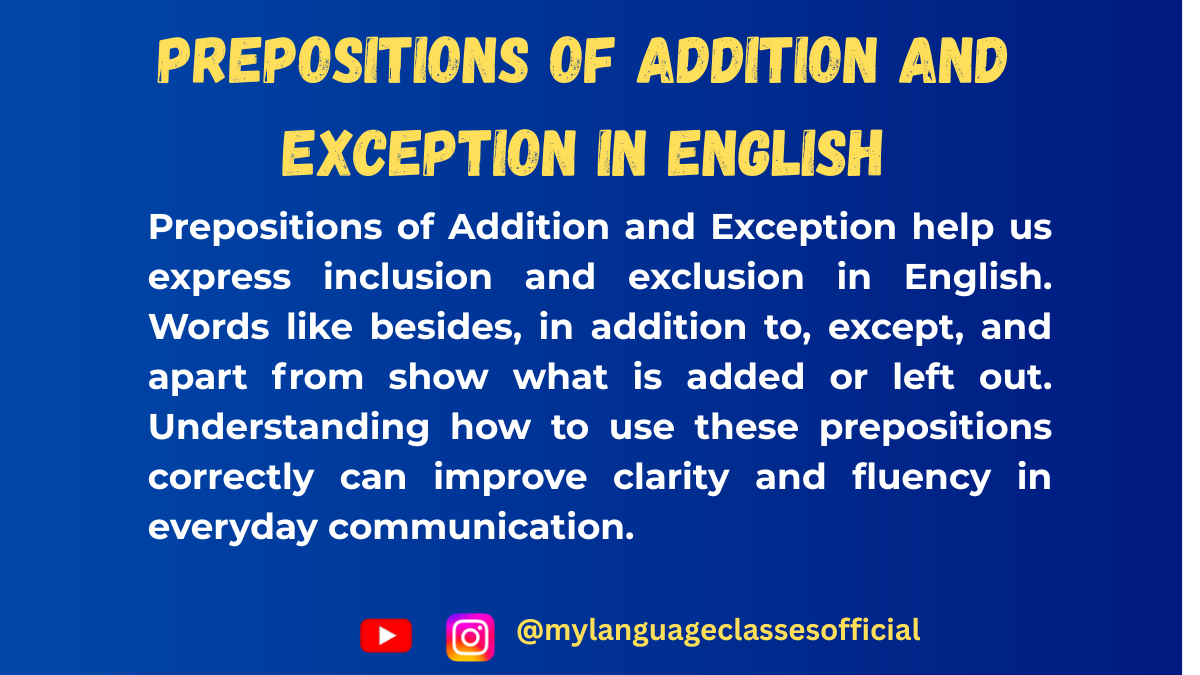Your cart is currently empty!
Tag: prepositions in sentences
-

Preposition of Manner and Method in English
Prepositions play a crucial role in English grammar by linking words and phrases to express relationships. Among them, prepositions of manner and method describe how something happens or how an action is performed. Understanding these prepositions will help in constructing clear and precise sentences.
Usage of Prepositions of Manner and Method
Prepositions of manner and method are used to describe the way an action is carried out. They answer the question “How?” and provide clarity on the mode of an action. These prepositions are commonly used with verbs to indicate how something is done.
Situations Where Prepositions of Manner and Method Are Used:
- Describing Actions – How an action is performed (e.g., “She spoke with confidence.”)
- Means of Communication – How messages are conveyed (e.g., “I informed him by email.”)
- Transportation Methods – How a person travels (e.g., “He came by car.”)
- Instruments or Tools Used – What is used to perform an action (e.g., “He wrote with a pen.”)
- Style or Behavior – How someone behaves or reacts (e.g., “She acted in a rude manner.”)
- Work Process – How work is done (e.g., “The task was completed in a professional way.”)
- Payment Methods – How a transaction is made (e.g., “I paid by credit card.”)
- Languages Spoken – How something is expressed (e.g., “He explained it in Spanish.”)
- Order or Sequence – The manner in which events take place (e.g., “He explained step by step.”)
- Emotions or Attitude – The manner in which emotions are displayed (e.g., “She answered with a smile.”)
List of Prepositions of Manner and Method
Below is a table listing common prepositions of manner and method along with example sentences:
Preposition Example Sentence 1 Example Sentence 2 by She traveled by train. I sent the message by email. with He cut the paper with scissors. She painted the picture with a brush. in She spoke in a soft voice. He completed the work in a hurry. on They talked on the phone. He arrived on time. through He learned French through practice. She succeeded through hard work. via We will communicate via email. He sent the money via bank transfer. like She ran like the wind. He behaves like a child. as He worked as a manager. She acted as his assistant. using He repaired the machine using a tool. She solved the problem using logic. without She did it without hesitation. He left without saying goodbye.
More Example Sentences
- He performed the task with great skill.
- The letter was sent by post.
- She communicated via video call.
- He completed the test without any difficulty.
- She entered the room in a hurry.
- He fixed the issue using his knowledge.
- The news was delivered on the radio.
- The decision was made through consensus.
- She danced like a professional.
- The work was done in an efficient manner.
Fill in the Blanks
- He traveled to work ___ bus.
- She wrote the essay ___ a pen.
- The information was sent ___ email.
- He spoke ___ a soft voice.
- She completed the project ___ hard work.
- They communicated ___ phone.
- He handled the situation ___ patience.
- The machine was repaired ___ a screwdriver.
- The announcement was made ___ the radio.
- She left the meeting ___ saying a word.
Answers:
- by
- with
- by
- in
- through
- on
- with
- using
- on
- without
Things to Keep in Mind
- “By” is commonly used to indicate means of transport, communication, and payment.
- “With” is used for tools, instruments, and emotions.
- “In” is used for style, behavior, and emotions.
- “On” is used for communication and time.
- “Through” is used for processes and effort.
- “Via” is a more formal way to express routes or channels.
- “Like” and “as” should not be confused; “like” is used for comparisons, whereas “as” refers to roles or functions.
- “Using” highlights the method or tool employed.
- “Without” indicates absence or lack of something.
Conclusion
Prepositions of manner and method are essential for expressing the way an action is performed. They enhance clarity and precision in speech and writing. By understanding their correct usage, learners can improve their fluency and effectiveness in communication. Keep practicing, and soon, using these prepositions will become second nature!
If you enjoyed this lesson, be sure to check out more posts like this on my blog at My Language Classes. Don’t forget to subscribe my YouTube channel and follow me on Instagram for the latest language learning tips and lessons. Leave a comment below to share your thoughts, or ask any questions you have about nouns.
Happy learning! 😊

